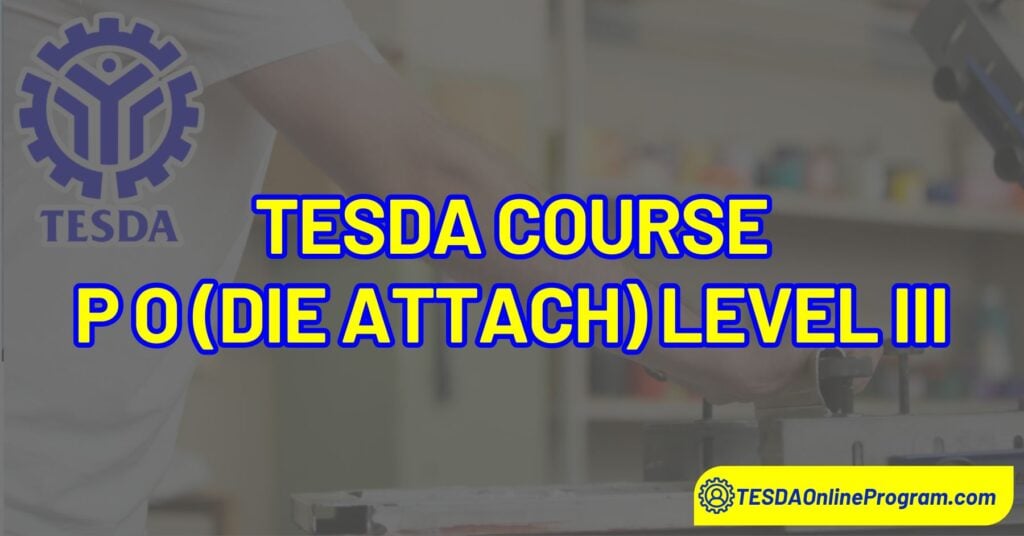The Data Encoding & Management Level II course by TESDA equips individuals with skills to handle data tasks. It covers data preparation, application systems operation, and efficient data entry, ensuring accuracy and integrity. This course provides a strong foundation for data-related roles.
Also read: Full List of TESDA NC2 / NC II Courses
Beyond basic entry, the course includes generating reports, coordinating data collection, and providing data to clients. Students learn to manage and update data within systems, maintaining quality. These skills prepare learners to address real-world data challenges and contribute to organizational success.

What is Data Encoding & Management?
The Data Encoding & Management Level II involves skills for preparing, encoding, and managing data, including system operations, data entry, report generation, data coordination, client data provision, and system data management.
Benefits
Here are some benefits of taking Data Encoding & Management Level II Course:
- Gain proficiency in preparing and encoding data efficiently.
- Enhance skills in accessing and operating various application systems.
- Learn to generate accurate reports from data.
- Develop the ability to coordinate and report on data collection effectively.
- Acquire the expertise to provide reliable data to clients.
- Master the management, monitoring, and updating of data within systems.
Units of Competency
This qualification consists of several units of competency, which are as follows:
a. BASIC COMPETENCIES
- Participate in workplace communication
- Work in a team environment
- Solve/address general workplace problems
- Develop career and life decisions
- Contribute to workplace innovation
- Present relevant information
- Practice occupational safety and health policies and procedures
- Exercise efficient and effective sustainable practices in the workplace
- Practice entrepreneurial skills in the workplace
b. COMMON COMPETENCIES
- Apply quality standards
- Perform Computer Operations
c. CORE COMPETENCIES
- Prepare data for encoding
- Access and operate application systems (i.e. T2MIS )
- Enter data into application systems
- Manage data
- Generate report
- Coordinate and report on data collection
- Provide data to clients
- Monitor data
- Update data in the system
Sample of Certificate of Completion


Career Opportunities
A person who has achieved this Qualification is competent to be:
- Data encoder
- T2MIS data encoder (for TESDA)
- Processing Officer (for TESDA)
Also read: Guide: How to Create a TESDA Online Account
Requirements
To enroll in this course, you will need the following documents:
- PSA Birth Certificate
- High School or College Diploma
- Certified True Copy of Official Transcript of Records or Form 137
- Certificate of Good Moral Character or GMRC
- 1 x 1 and/or 2 x 2 pictures
To obtain further details, please reach out to the enrollment site that aligns with your requirements. Kindly note that the criteria may vary.
Qualifications
Trainees wishing to enroll in the course should meet the following qualifications:
- Must have completed at least 10 years of basic education or its equivalent, in accordance with existing DepEd policies and regulations.
- Must have the ability to communicate effectively in both oral and written forms.
- Must be physically capable of operating/manipulating a computer or any input device.
This list excludes specific institutional requirements like education, work experience, clearances, and other criteria needed by the school or training center for the TVET program.
Trainer Qualifications
The trainer qualifications for this Data Encoding & Management Level II require the following:
- Must possess a Trainer’s Methodology Certificate (TMC), a Training of Trainers Certificate, or have a minimum of two (2) years of experience as a practicing trainer within the last five (5) years.
- Minimum of two (2) years of relevant industry experience as a data encoder or in a related computer/IT support role within the past five (5) years.
These requirements ensure that the instructor is fully prepared to teach and guide students through advanced data encoding and management processes.
Frequently Asked Questions
1. Who should take the Data Encoding & Management Level II course?
A: Individuals interested in data-related roles such as data encoder, T2MIS data encoder (for TESDA), or processing officer (for TESDA).
2. What are the career opportunities after completing this course?
A: Graduates can pursue careers as data encoders, T2MIS data encoders for TESDA, or processing officers for TESDA.
3. Are there any requirements to enroll in this course?
A: Yes, interested individuals must meet certain qualifications and provide necessary documents such as a PSA Birth Certificate and High School or College Diploma.
4. Is the course recognized by TESDA?
A: Yes, this course is offered and recognized by TESDA.
5. Can I apply for this course even if I don’t have prior experience in data encoding?
A: Yes, as long as you meet the necessary qualifications and attend the required training, you can enroll in this course regardless of your previous experience.
6. What skills will I learn from taking Data Encoding & Management Level II?
A: This course equips you with skills in data preparation, system operation, efficient data entry, report generation, data coordination, client data provision, and data management.
Summary
Data Encoding & Management Level II course provides individuals with advanced skills in data preparation, encoding, and management. This enables them to become proficient in handling various data-related tasks within organizations, ultimately contributing to their success. The course offers a range of career opportunities and requires specific qualifications for both trainees and trainers. Through this course, learners gain essential skills that can be applied in various industries and prepare them for real-world data challenges.



